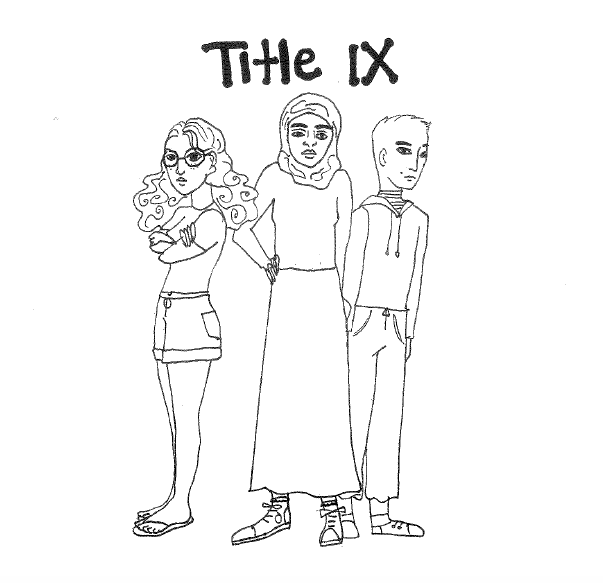In a self-defense class I took last Sunday, I learned how to defend myself from an attacker. I learned to stomp on their feet, use the sharp point of my elbow and knee them in sensitive areas. The ultimate goal in the class was to separate yourself from the person inflicting harm. The class empowered me; I feel safer on campus, especially late at night. But there is nothing protecting me from the lack of institutional support regarding sexual assault at Oxy.
After two years, Occidental College is now my home. But 55 percent of sexual assault occurs at or near the victim’s home. This is the ultimate invasion of a woman’s privacy. About one-quarter of undergraduate women say they have been victims of sexual assault since starting college, according to a survey this year at 33 major universities. While women are disproportionately affected by sexual assault, it’s important to note that LGBTQIAP+ students are one of the largest groups impacted.
School should be a safe home, and yet — it’s not.
Occidental currently has not had a Title IX coordinator since Jennifer Broomfield stepped down in July. While Oxy currently has an interim one serving, Jody Shipper, I have talked to students who weren’t sure how they would voice their sexual assault allegations. Even in their search for a new Title IX coordinator, male student voices have been prioritized over female student voices — as evidenced by the email President Veitch sent out Oct. 10 where Veitch listed who is serving on the search committee for a Title IX coordinator.
Harrison Wakefield (senior), David Paine (junior), Junko Anderson (junior) and now Caroline Diamond (sophomore) will be serving on the committee. However, the initial makeup of this panel is odd because women are most affected by sexual assault. Women should be the group most represented — it’s undeniable.
I find this incredibly problematic because it runs counter to the statistics — 91 percent of the victims of rape and sexual assault are female, and 9 percent are male. While men can also be raped and sexually assaulted, evidence shows that women are disproportionately affected.
Female students are clearly and deeply affected by sexual assault and rape during their lifetime, and especially during their college experience. I am troubled by the fact that we don’t currently have a Title IX coordinator and concerned about which students are finding a new one.
Unfortunately, this is very on-brand with Occidental’s institutional history. In 2013, Occidental was one of the first in a series of colleges accused of failing to take campus sex crimes seriously. Occidental College was accused by students and alumni of underreporting sexual assault allegations, along with covering up rape crimes. In 2015, our school was featured in “The Hunting Ground,” a documentary that exposed the ways college students on campuses face retaliation after being raped.
As shown in the documentary, rape and sexual assault are horrible crimes that continue to rob survivors of their academic and personal agency — and yet their school administrations have continuously failed them. Many colleges silence victims when they speak up about their sexual assault experiences, and in some cases, attempt to convince victims they brought the sexual assault upon themselves.
Oxy’s sexual assault climate survey from last year shows that only 15 percent of students participated in Fall 2018. Student response rates have dropped to half of what they were in 2015. The significant drop in survey responses makes it hard to accurately make conclusions that reflect the student body. Regardless of the lack of responses, the results are still important to note. The majority of sexual assaults occur in the student’s first or second year. And sexual assault rates at Occidental are higher for female-identifying students than for male-identifying students. As a sophomore woman, I feel unsafe and want Oxy to do better.
Occidental’s mission statement is “to provide a gifted and diverse group of students with a total educational experience of the highest quality — one that prepares them for leadership in an increasingly complex, interdependent and pluralistic world.” This is a liberal institution that claims to care about democracy, equity and freedom. Yet, we cannot claim to be advocates for justice and social change if we don’t prioritize the rights and safety of women on our campus. We cannot be prepared to be leaders if we are conditioned to feel inadequately supported.
While we as a school have achieved great strides through the work of Project SAFE and Oxy Sexual Assault Coalition (OSAC), along with other student-run groups, we are still wrestling with issues concerning rape and sexual assault. We need to do more to represent and protect women.
Oxy’s administration needs to do better when it comes to Title IX resources. Although Oxy is supposed to feel like my home, the lack of sexual assault resources makes me feel unsafe. But more importantly, Oxy needs to prioritize female voices in their search for a new Title IX coordinator.
As Veitch stated in his email to the whole school concerning the Title IX coordinator hiring process, “There will be an open session during the finalists’ campus visits for all members of the community to meet them and ask questions.”
I recognize that this topic can be immensely triggering for people, survivors especially. But, I hope those of us who are willing and able can show up to be involved in the process of finding the Title IX coordinator in the open session.
I can continue to take self-defense classes, but nothing can fully shield me if Oxy’s administration doesn’t step up.
Maddie Solomon is a sophomore politics major. She can be reached at solomonm@oxy.edu.
![]()































